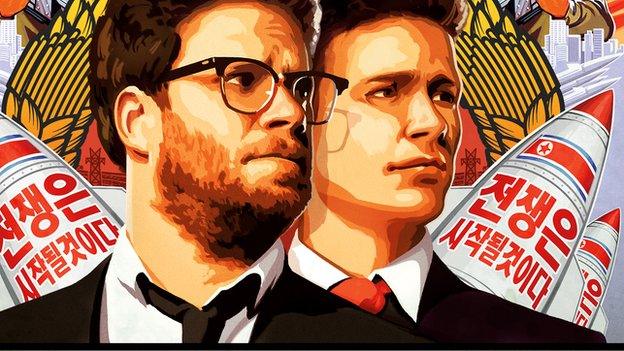A comedy of terrors - in four acts
- Published
- comments
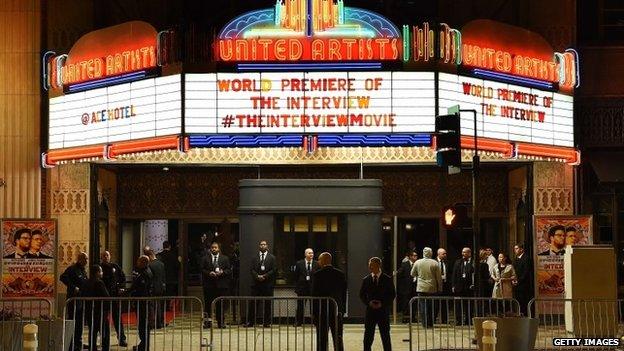
Having watched the trailer for The Interview, I'm going to say it's not a film I would normally rush to see.
But after Sony's decision to can it (for now), I am now determined to watch - and buy tickets for all my friends too. But like any good drama, it has developed over three acts growing progressively more sinister as it goes along. There is a potential Act Four - more of which later. So readers, here's my synopsis so far.
Act One: Life imitates art
A hack - on Sony Pictures who were about to release a comedy caper about two journalists going to Pyongyang to assassinate the supreme leader Kim Jong-un. The finger of suspicion here in the US has been pointed firmly at North Korea.
In a country not best known for its sense of humour (at least intentionally), news of this latest Hollywood production had sparked outrage.
The cyber-attack is brilliantly effective and penetrates Sony's computer systems. It sounded like a ludicrous plotline from the movie itself. But no. It was reality. All of this happened.
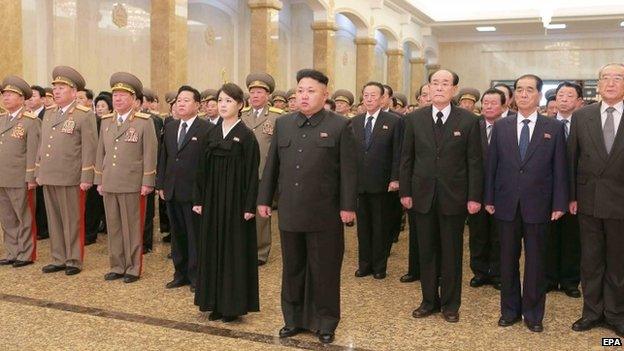
Act Two: Cringing interlude
The hackers not only get inside, they get access to everyone's emails, and oh what fun the hackers had releasing them. Best were the emails sent between the studio boss Amy Pascal and producer Scott Rudin in which Mr Rudin describes the saintly Angelina Jolie as "a minimally talented spoiled brat".
These two then had a conversation about meeting Barack Obama and what films would interest him. This exchange is so puerile that it is not worth quoting - suffice to say it was all about showing him movies that focused on black characters.
The gossip columns have a field day and can't believe their luck that such a rich seam of tittle-tattle is laid out on a platter for them.
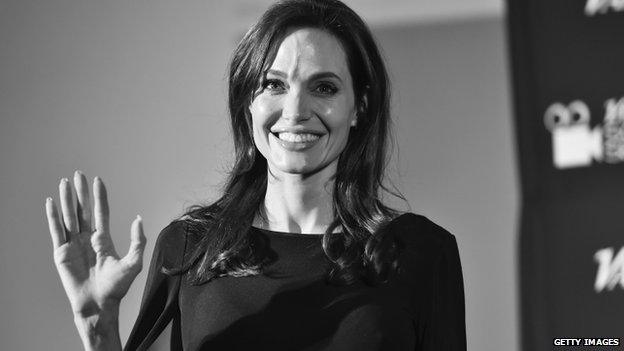
Act Three: Freedom of speech
And from comedy to something much more profound, and the decision last night by Sony to pull the film from its scheduled release on 25 December. This came after a chilling threat from the hacking group, "Guardians of Peace".
"We will clearly show it to you at the very time and places 'The Interview' be shown, including the premiere, how bitter fate those who seek fun in terror should be doomed to. Soon all the world will see what an awful movie Sony Pictures Entertainment has made. The world will be full of fear. Remember the 11th of September 2001. We recommend you to keep yourself distant from the places at that time. (If your house is nearby, you'd better leave.)"
The president gave an interview in which he said there was no credible intelligence that such an attack was being planned - and he urged cinemagoers to keep going.
But the cinema chains got cold feet, so did Sony and that was that.
Which has led many to ask - whatever happened to freedom of speech, what happened to the First Amendment, what happened to Voltaire's 'I disapprove of what you say, but I will defend to the death your right to say it'.
David Oyelowo - who plays Martin Luther King in the film Selma - says he can understand why Sony made its decision
Aaron Sorkin, the genius writer behind The West Wing, The Newsroom and much else besides said: "Today the US succumbed to an unprecedented attack on our most cherished, bedrock principle of free speech by a group of North Korean terrorists who threatened to kill moviegoers in order to stop the release of a movie."
That quote from Mr Sorkin begs another question.
After 9/11 people made a point of going to New York to show that they would not be intimidated by terrorists.
In the Blitz during the Second World War, the-then Queen Elizabeth made a point of going to the East End after it was extensively bombed to show that she stood shoulder to shoulder with the people there, and refused to move her family from Buckingham Palace to the safety of the countryside, which she could have easily done.
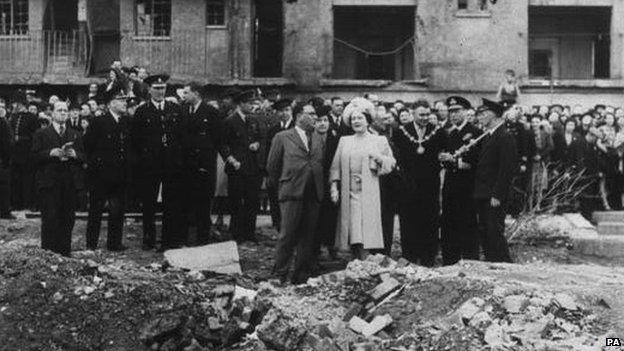
Queen Elizabeth, wife of King George VI, was undeterred by Nazi air raids
John F Kennedy stood with the people of Berlin during the Cold War and the period of the airlift to declare "Ich bin ein Berliner'."
But today's cinema bosses, with well-groomed lawyers at their side, are fearful of litigation. They are responsible for the safety of people at their cinemas, and so they take the decision to not risk it.
Act Four: Potentially the most serious consequence
And here is the really deadly serious bit about all this. When does a cyber attack constitute an actual act of war? At the highest levels of government this is a question that is being asked.
The former Speaker of the House, Newt Gingrich, has said the actions against Sony are an act of war and Mr Obama should be planning revenge against North Korea.
And what if the next target for the cyber attackers is not a film corporation but an electricity grid, or gas suppliers, or water pumping stations? Then what?
Call this a comedy? I'm not sure there is much to laugh about.
- Published18 December 2014
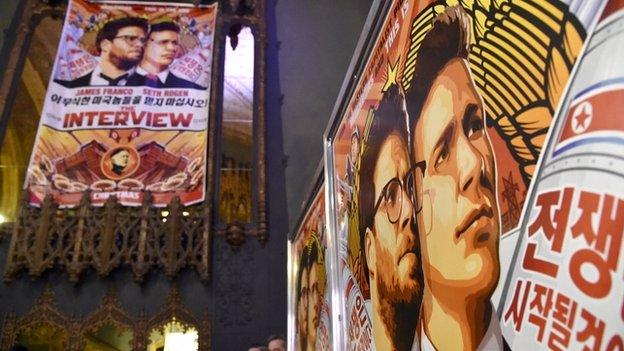
- Published29 December 2014
